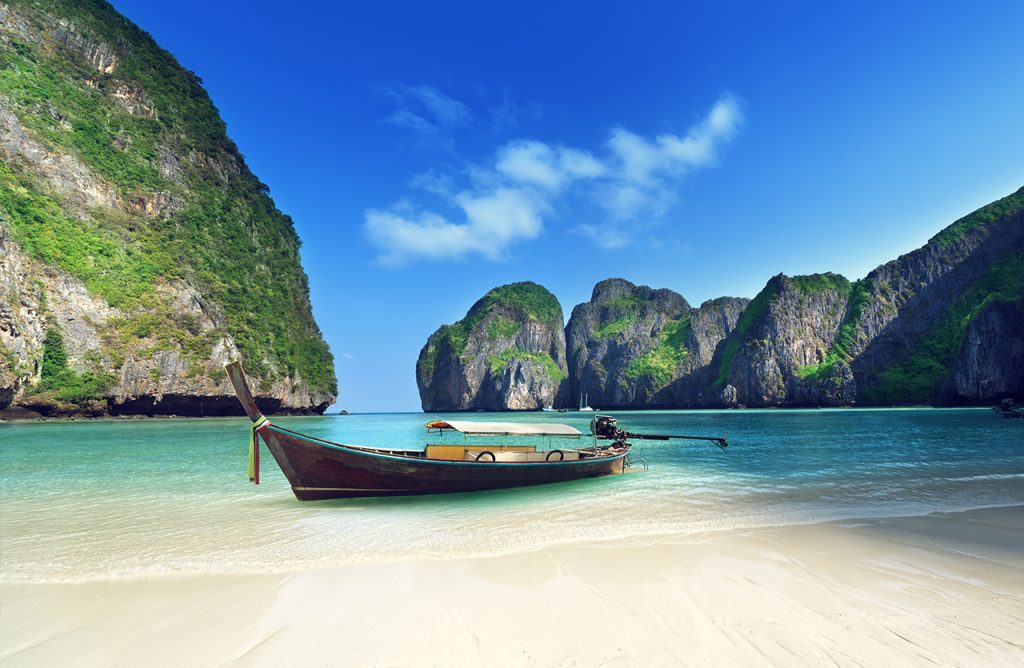
As tourism infrastructure reopens nationwide to welcome back domestic arrivals, Thailand’s government is considering reopening one of its most iconic attractions: Maya Bay. The location, which was made famous by the 2000 film The Beach, starring Leonardo DiCaprio, has been closed since 2018 due to environmental damage caused by overcrowding. As international tourists will most likely return to Thailand in limited numbers, the government sees this as the ideal time to reopen one of its most popular destinations and rejuvenate its tourism sector.
News of Maya Bay’s possible return to the fold was confirmed by Natural Resources and Environment Minister Warawut Silpa-Archa, speaking at the opening ceremony for a 360-degree viewpoint tower on nearby Koh Hong. According to the minister, Thailand’s most famous island could be back in business within the next six months. The government has also been working on a number of schemes to provide tourists with similar attractions and lighten the load on one of their most popular destinations. Last year, Mu Ko Ang Thong National Park was promoted as an interim alternative to Maya Bay.
Thailand’s most famous beach was closed in 2018 in order to let it recover – the lagoon and corals had previously been degraded by boat traffic and pollution resulting from overtourism. To ensure the ecosystem at Maya Bay is managed sustainably, a group of environmental experts and advisors will be heavily involved in the reopening; as with all other locations in Thailand, strict health and safety rules will also be applied to protect the location and its visitors from Covid-19. Officials are reportedly planning to cap the number of daily visitors to a maximum of 350; boats will also not be permitted to dock at the shoreline, in a bid to protect the corals of the bay. A pier is currently under construction.
A total of 1.38 million tourists visited the bay in 2016, with 1.65 million making the popular backpacker pilgrimage the following year. By 2017, at the peak of its popularity Maya Bay was receiving an average of 5,000 daily visitors (more than double its capacity). Considering its remote location and lack of infrastructure, these crowds soon overwhelmed the island’s fragile ecosystem and began to damage its natural resources, leading to a shutdown in 2018 that was subsequently extended multiple times.
To date, Maya Bay remains closed to the public, so its beach, bay and coral reefs have a chance to rejuvenate naturally. Positive effects of the closure are already evident. Last year, reef sharks were spotted in the shallows; a sight not seen at the bay for many years and a promising sign of recovery. Any reopening would need to be strictly monitored and controlled, to ensure one of Thailand’s most iconic tourism locations is protected for future generations.





